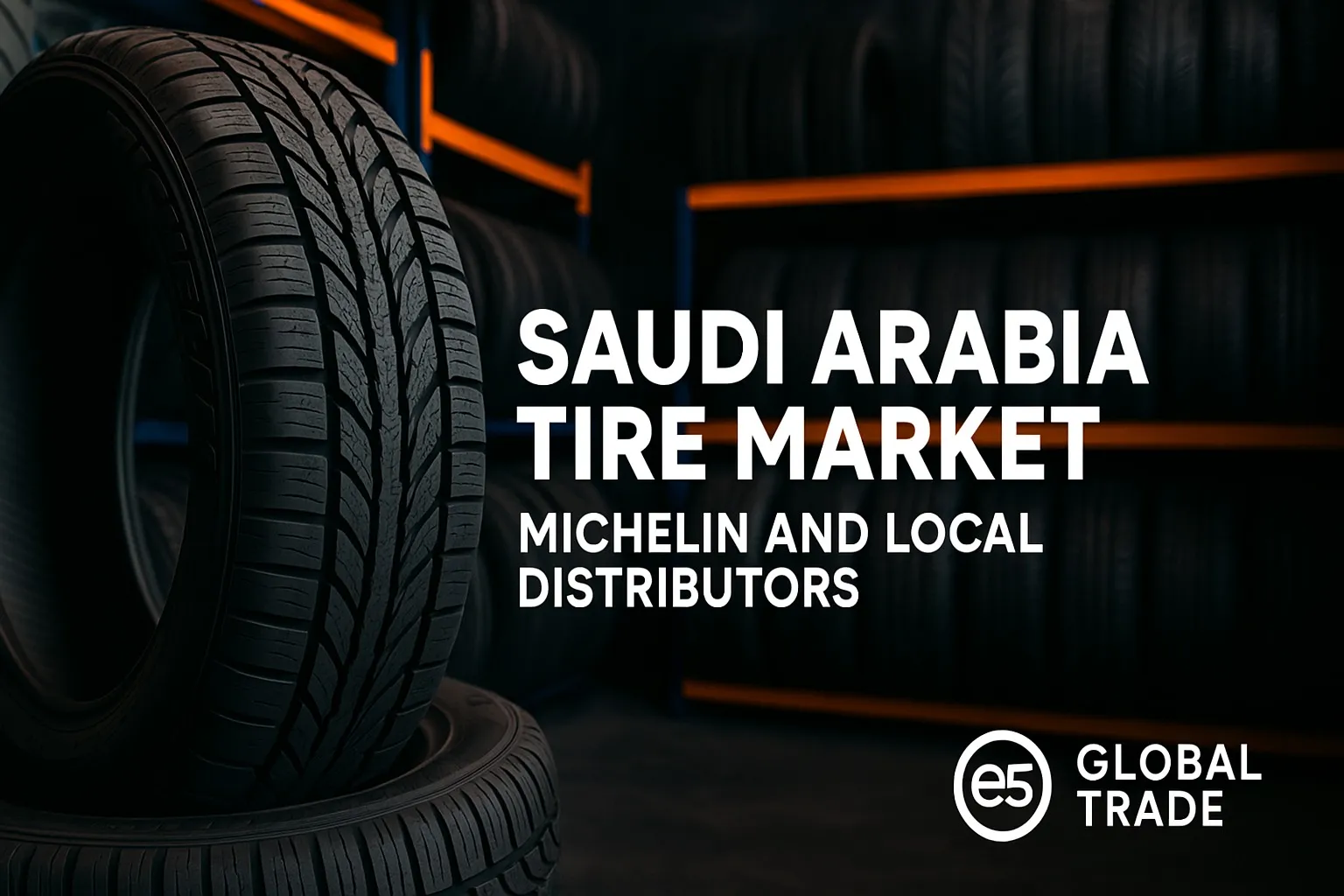Saudi Arabian Vehicle Tire Market: Michelin and Local Distributors Saudi Arabia is one of the largest and most dynamic automotive markets in the Middle East. The country's young population, high vehicle ownership rate, vast geographic structure, and sustainable transportation and infrastructure investments as part of its Vision 2030 are generating significant demand for its tire sector. In this context, Michelin, a leading global tire manufacturer, holds a strong position in the Saudi market and is pursuing strategic growth in partnership with local distributors. Market Overview Approximately 8-10 million tires are consumed annually in Saudi Arabia. This figure applies to both passenger cars and commercial vehicles (trucks, buses, construction, and mining equipment). Key factors influencing market growth: High temperatures and challenging terrain → more frequent tire changes. Increasing number of vehicles (especially SUV and pickup models). Growth in the logistics and construction sectors. New city projects (NEOM, The Line, Red Sea Project) → demand for construction and heavy vehicle tires. Michelin's Position in the Saudi MarketMichelin is a brand that has been operating in Saudi Arabia for many years and is known for its high-quality perception. Particularly: Leader in the premium segment: Preferred among passenger car drivers for its reliability and long service life. Strong in commercial and heavy vehicle tires: The preferred brand among logistics companies, construction companies and mining operators. Products specific to high temperatures: Series such as “Michelin X Multi Energy”, “Agilis” and “Pilot Sport” have been specifically developed or optimized for the Saudi climate. Local service and guaranteed sales network: Michelin makes a difference not only with its products but also with its service, tire monitoring systems and fleet management solutions. Local Distributors and PartnershipsMichelin does not sell directly in Saudi Arabia; it serves its market through local distributors and dealer networks. Most important business partners: 1. Almutlaq GroupMichelin’s oldest and largest distributor. The partnership has been ongoing since the 1970s. It has 50+ dealers and service networks all over the country. Strong in both retail and wholesale; also offers tire mounting, balancing and maintenance services. 2. Al Jomaih AutomotiveA well-established holding in the automotive sector (such as a Toyota and Lexus dealership). A strategic partner that distributes Michelin tires through its dealers. It stands out especially in sales to luxury car owners. 3. Binzagr GroupIt has a strong network in Western Saudi Arabia (Jeddah, Mecca). It is effective in commercial vehicle tires and fleet sales. It plays a key role in the distribution of Michelin's heavy vehicle and bus tires. 4. Abdul Latif Jameel (ALJ)A major player in the automotive and logistics fields in the region. They are involved in joint projects with Michelin; they especially cooperate in fleet management and corporate sales. They offer integrated services such as "Michelin Total Mobility" to Saudi companies. Strategic Developments and Future PlansMichelin is investing in digitalization and smart tire solutions in Saudi Arabia. Solutions such as tire sensors, pressure monitoring systems, and fleet efficiency software are being offered. In line with the 2030 Vision, tires specifically designed for electric vehicles (lower rolling resistance, higher load capacity) are being introduced. Environmentally friendly tire recycling projects are being launched in collaboration with local distributors. The goal is to contribute to the underdeveloped tire recycling infrastructure in Saudi Arabia. The dealer and service network is being expanded to major cities such as Riyadh, Jeddah, and Dammam, as well as NEOM and the northern regions. Challenges Encountered: Aggressive pricing policies of competing brands (especially for tires originating in China and South Korea). The presence of counterfeit and smuggled tires in the market → a lack of trust with consumers. High temperatures shorten tire life → which can affect consumer satisfaction. Regional imbalances in the distribution network → access difficulties in rural and remote areas. Conclusion: Michelin aims to position itself in the Saudi Arabian tire market not only as a product brand, but also as a technology, service, and sustainability partner. Thanks to its strong local distributors, Michelin has a solid infrastructure in both the passenger and commercial vehicle markets. With future electric vehicles, smart city projects, and logistics growth, Michelin is expected to further increase its share of the Saudi market. Local distributors, however, not only provide sales but also participate in every stage of the value chain, providing maintenance, digital solutions, and corporate services. This collaborative model remains key to Michelin's long-term success in the region.
E5 Global Trade | Yazılar
Saudi Arabia Vehicle Tire Market: Michelin and Local Distributors


